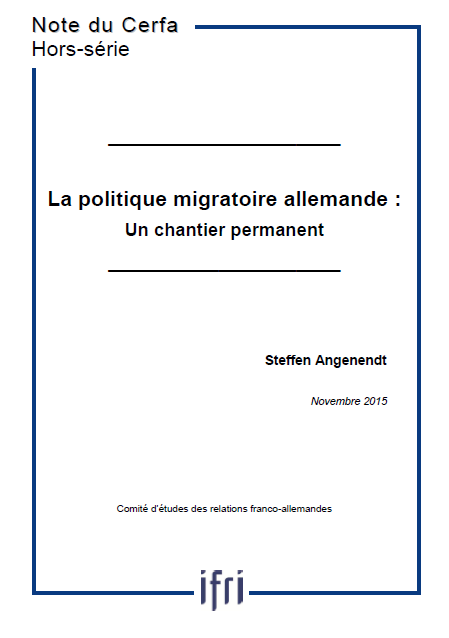German Migration Policy: Unfinished Business

Although Germany is currently one of the main immigration countries, the Federal Republic has been slow to develop a long-term migration policy that comprehensively meets the diverse challenges that the country faces. Germany remains focused on short-term actions and is reacting to changes rather than actively anticipating them.
Current discussions focus above all on the reception and accommodation of refugees, as well as on a fair distribution of responsibilities across the European Union. This ignores two key elements: first, although the number of refugees keeps growing, they are only one part of the overall migrant population. Second, for both economic and demographic reasons, Germany still needs migrants.
Consequently, in terms of migration policy, Germany faces a triple challenge. In the first place, it has to contribute to the resolution of the current humanitarian catastrophes on a scale that reflects its status as a great political and economic power. Secondly, it must elaborate and implement an efficient and sustainable migration policy. Finally, the Federal Republic needs to reinforce its efforts to integrate migrants – whether they are new arrivals or have been long settled in the country. This is a task that the state will not be able to accomplish on its own; nothing less than a huge mobilization of the entire civil society is required.
This paper is published in French only: La politique migratoire allemande : Un chantier permanent
This article was initially published in the collective work: L’Allemagne change ! Risques et défis d’une mutation
Steffen Angenendt is research fellow on Global Issues at the foundation Stiftung Wissenschaft und Politik (SWP) in Berlin.






